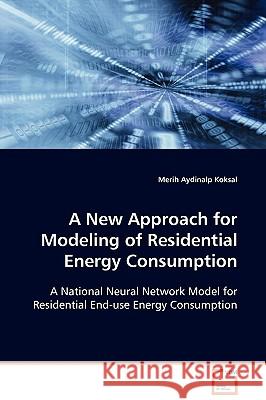A New Approach for Modeling of Residential Energy Consumption » książka
A New Approach for Modeling of Residential Energy Consumption
ISBN-13: 9783639019728 / Angielski / Miękka / 2008 / 244 str.
Energy use and associated greenhouse gas emissions, and their potential effects on the global climate change have been the worldwide concern particularly after the Kyoto Protocol. Improving the energy efficiency is one of the most effective ways to reduce energy use and associated emissions, especially for the residential sector. Since energy efficiency improvements have complex interrelated effects on the household energy use, detailed mathematical models are required to evaluate their effects on residential energy use. This book investigates the use of Neural Network (NN) approach for modeling residential end-use energy consumption at the national level. In addition to the NN model, a statistical residential end-use model is also developed. A comparison of the estimates of the NN model with those of the statistical and an engineering model developed earlier using the same database shows that the NN model has a higher prediction performance and ability to characterize the residential end-use energy consumption than other models. The NN Model is able to estimate the impact of socio-economic factors and energy saving measures on residential end-use energy consumption successfully.











